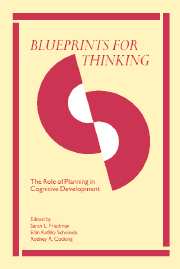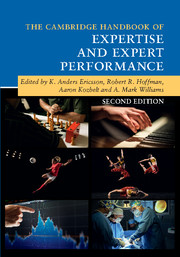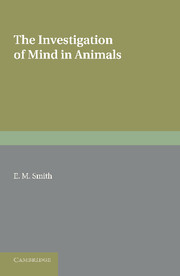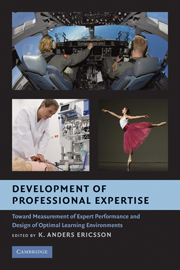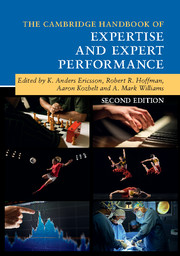Toward a General Theory of Expertise
During the past twenty years, our knowledge about expertise has dramatically increased. Laboratory analyses of chessmasters, experts in physics, medicine, international-level musicians, athletes, writers, and performance artists have allowed us to carefully examine the cognitive processes mediating outstanding performance in very diverse areas of expertise. These analyses have shown that expert performance is primarily a reflection of acquired skill resulting from the accumulation of domain-specific knowledge and methods during many years of training and practice rather than special innate talent.
Confronted with universal limits of human information processing concerning memory capacity and speed of processing, expert performers are found to be able to acquire similar types of skills to circumvent these limits. General findings on expertise are systematized to lay the foundation of a general theory of expertise.
In this book, many of the world's foremost scientists studying expert performance in specific domains of expertise review the state-of-the-art knowledge about expertise in these domains with the goal of identifying characteristics of expert performance that can be generalized across many different areas of expertise. These papers provide a comprehensive summary of general methods to study expertise and the current knowledge about expertise in chess, physics, medicine, sports, performing arts, music, writing, and decision-making. Most importantly, they reveal the existence of many general characteristics of expertise.
Reviews & endorsements
"The organization of the book, its consistency with respect to the underlying theme, and the quality of the individual chapters make this a valualbe contribution to the literature on expert performance. This volume should be considered essential for students of cognitive science and expert performance. It will also be a useful resource for anyone who is faced with the challenge of identifying and testing experts in previously uninvestigated domains." Janice M. Deakin, Contemporary Psychology
Product details
August 1991Hardback
9780521404709
360 pages
235 × 157 × 28 mm
0.667kg
Available
Table of Contents
- Preface
- 1. Prospects and limits of the empirical study of expertise: an introduction K. Anders Ericsson and Jacqui Smith
- 2. Expertise in chess: the balance between knowledge and search Neil Charness
- 3. Learning and use of representation for physics expertise Yuichiro Anzai
- 4. The general and specific nature of medical expertise: a critical look Vilma L. Patel and Guy J. Groen
- 5. Motor-skill experts in sport, dance, and other domains Fran Allard and Janet L. Starkes
- 6. Musical expertise John Sloboda
- 7. Literate expertise Marlene Scardamalia and Carl Bereiter
- 8. The process-performance paradox in expert judgment: how can experts know so much and predict so badly? Colin F. Camerer and Eric J. Johnson
- 9. Controlling complex systems
- or, Expertise as 'grandmother's know-how' Dietrich Dörner and Julia Schölkopf
- 10. Techniques for representing expert knowledge Judith Reitman Olson and Kevin J. Biolsi
- 11. Expertise as the circumvention of human processing limitations Timothy A. Salthouse
- 12. Symbolic connectionism: toward third-generation theories of expertise Keith J. Holyoak
- Index.


